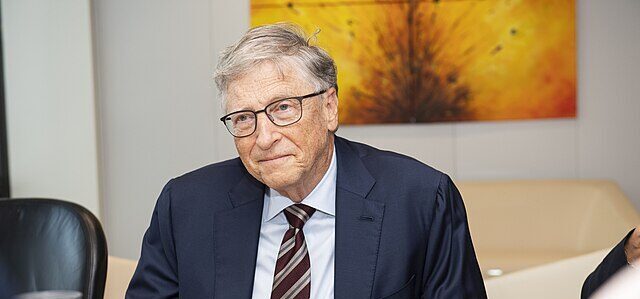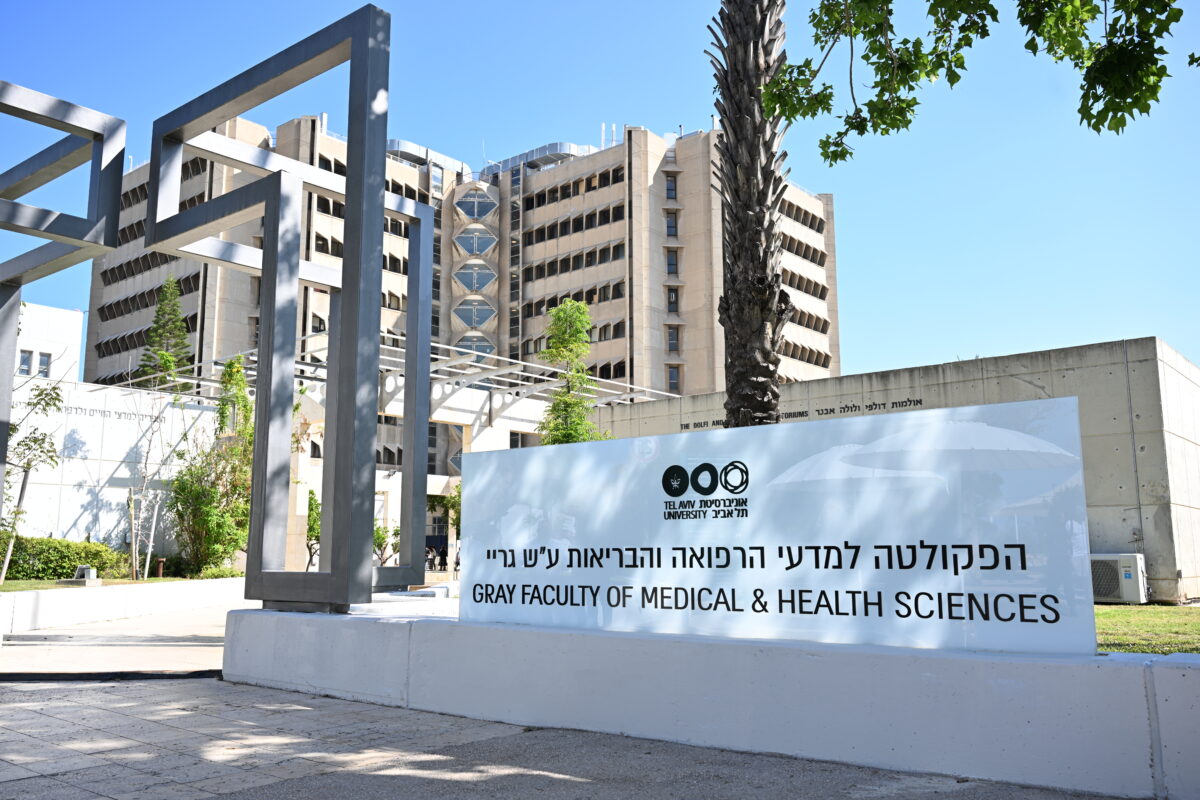A Whole New Approach to Cancer Care
At first glance, you might see Peggy and Andrew Cherng as simply a friendly husband and wife team. That’s OK. They are. They also happen to be entrepreneurial philanthropists who changed the food business and now may also change the way we look at cancer care.
The humble couple behind the newly announced Cherng Family Center for Integrative Oncology at City of Hope talk a great deal about family and the values that have guided them in life and in business: giving back to the community, leading by example and providing opportunities for others to achieve success.
The Cherngs co-founded and own Panda Express and the Panda Restaurant Group. It’s an American (and increasingly global) phenomenon that began with a single sit-down eatery and has grown to about 2,500 restaurants, 50,000 employees and $5 billion in annual sales.
Andrew immigrated to the United States in 1966 and, with his father, opened Panda Inn in Pasadena, California, in 1973. Andrew greeted guests while his father cooked in the back. Peggy, employed as an electrical engineer during the week, served as hostess on the weekends.
A few years later, everything changed when a local developer invited Andrew to create a fast-food version of Panda Inn for a new mall. That’s when Panda Express was born, and the concept took off.
Over the last 40 years, Peggy and Andrew, through their philanthropic initiatives including Panda Cares and the Panda Charitable Family Foundation, have supported worthy causes in health care, education, children’s organizations and disaster relief.
“Life really is about that,” explained Andrew. “I think that when our neighbors are doing well, when our community is doing well, when our country is doing well, everybody is doing well. America is a wonderful place and good things happen here because there are so many kind and generous people out there, helping other people.”
Evidence-Based Integrative Oncology
“Panda Restaurant Group began 50 years ago with a vision to bring the best of Eastern and Western flavors and cultures together through food. In the same spirit, we hope the Cherng Family Center for Integrative Oncology becomes a model of bringing the best of Eastern and Western medicine together to unlock holistic healing for our communities,” Peggy explained. “At Panda, one of our core values is giving, and we are grateful to help establish, through this gift from the Panda Charitable Family Foundation, pioneering integrated cancer care to not only save lives but improve the quality of life for cancer patients.”
“I believe people can benefit a lot from Eastern medicine in the United States,” she added, “and by combining it with Western medicine, City of Hope has the potential to elevate care for patients with cancer.”
There is already great interest in traditional Eastern therapies in the U.S. An estimated 40% of cancer patients use integrative therapies. Studies show integrative therapies can support better health, improve quality of life and optimize clinical outcomes.
However, few health care organizations — let alone cancer centers — provide access to integrative therapies under physician supervision and integrate them holistically into everyday care. City of Hope will use the Panda Charitable Family Foundation gift to make integrative oncology an evidence-based, interwoven standard of care that supports optimal cancer treatment and survivorship.
What Is Integrative Oncology?
Integrative oncology is a whole-person approach to cancer care that draws from diverse cultures, particularly traditional Chinese medicine (TCM) and other Eastern healing traditions.
The Cherng Family Center is sharply focused on bridging the knowledge and science gap between traditionally Western cancer treatments — chemotherapy, surgery, radiation, immunotherapy — and evidence-based, yet lesser-understood Eastern medicine, including acupuncture and herb-based treatments.
“To be able to bring the best from Eastern medicine to the Western world requires critical thinking about seeking alternative ways of integrating two very different cultures, two very different treatment methodologies, in order to provide the best,” Peggy said.
The center will have three goals: support research and clinical trials to develop evidence-based best practices for cancer patients, expand patient access to proven treatments, and educate and train the next generation of oncologists and scientists in integrative medicine. Within the next year, City of Hope plans to create one of the first integrative oncology fellowships led by oncologists.
“We’re going to push the science forward,” said Richard T. Lee, M.D., Cherng Family Director’s Chair for the Center for Integrative Oncology. “Ultimately, it’s about looking outside the box for treatments and incorporating them with evidence of safety and efficacy that improves care. That will be a real pillar of what we do.”
Lee, who joined City of Hope in 2022, has a long record of interest and achievement in integrative oncology. He led similar programs at Case Western Reserve University’s Seidman Cancer Center in Cleveland and MD Anderson Cancer Center in Houston.
But the seeds were planted many years earlier.
During medical school, he went to Taiwan on a Fulbright scholarship to study traditional Chinese medicine with a focus on acupuncture. What he saw opened his eyes.
“The average medical oncologist [in the U.S.] gets no training in other modalities,” he said. “But at China Medical University, students get degrees in Western and Chinese medicine. I saw those modalities applied in practice, and I saw people engaged in rigorous research. That surprised me, and I realized you can do both together.”
He has taken that mission to heart at City of Hope, examining many nonstandard therapies, often engaging in what he calls “deconstructive optimization,” which breaks down a treatment into its component parts to understand the key mechanisms of action and then rebuilds the therapy in a more optimized way. He sees promise in rigorously examining and ultimately incorporating acupuncture, yoga and qi gong, as well as art, music and massage therapy. And he expects significant potential in taking a close, careful look at the many plant- and herb-based remedies common in Eastern medicine.
In fact, he calls this a return to oncology’s roots.
“Over 30% of FDA-approved anti-cancer drugs are actually derived from plants,” he said. For example, paclitaxel (Taxol) and docetaxel (Taxotere), frequently used to treat breast cancer and other cancers, are both derived from tree bark. Many other medicines, from aspirin to morphine, have plant origins.
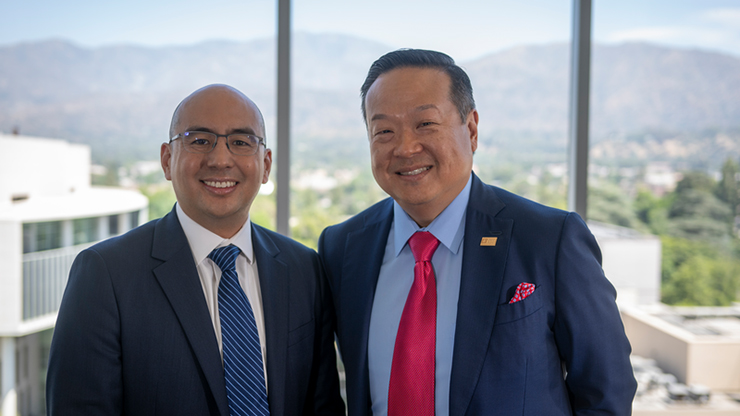
Eastern Medicine and Cancer Care
Edward S. Kim, M.D., M.B.A., Construction Industries Alliance City of Hope Orange County Physician-in-Chief Chair, recruited Lee for his integrative oncology experience and shares his enthusiasm for it.
Bringing such a level of scientific rigor to Eastern medicine will pay off in many ways, says Kim. It will raise those treatments to “standard of care” level, enabling insurance companies to cover them, easing patients’ concerns, and ultimately offering more and better choices for cancer care going forward.
As important as examining and mainstreaming Eastern treatments will be, even more crucial is an expanded effort, already underway, to bring this knowledge to more people, and to spread this philosophy nationwide.
“We want to educate everyone, from patients to clinicians,” said Lee, “and educate other cancer centers to show how they can do this in a sustainable way.”
He calls it “a dream come true.” A dream accelerated by the generosity of the Panda Charitable Family Foundation.
“We don’t expect miracles,” said Andrew. “We expect possibilities.”
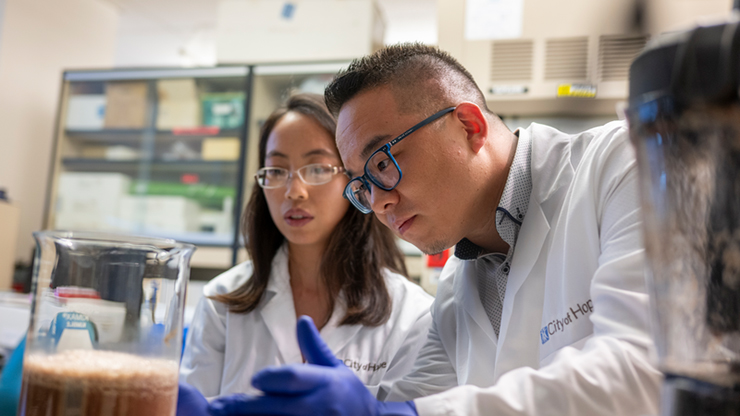
Integrative Oncology and City of Hope: An Ideal Match
“It could only happen here.”
Lee ticks off the reasons why City of Hope is the natural home for the new Cherng Family Center for Integrative Oncology.
“City of Hope has made a major investment in holistic care,” he said, pointing to its Department of Supportive Care’s 15-year track record of leadership and over 150-person staff. It was the first in the United States to fully integrate supportive care specialties into patients’ clinical care and is one of the largest programs of its kind today.
What he doesn’t mention is his own formidable profile. Lee is one of only a handful of oncologists in the United States focused primarily on integrative oncology. He was instrumental in putting together the research and cancer care infrastructure for City of Hope’s newest $1 billion cancer center in Irvine, California, which is also supported, in part, by philanthropy.
Kim offers more reasons.
“We are singularly focused on cancer,” he explained. “And we are now a national network” with the addition of facilities in Atlanta, Chicago and Phoenix. Such broad reach has benefits. “We can scale up quickly what others would have challenges with. City of Hope is poised to become the national center for integrative oncology,” which is very much a key part of Peggy and Andrew Cherng’s vision. Their gift initially will support pilot programs in Orange County and Los Angeles that will help create the models for how to extend the program to other locations in the future.
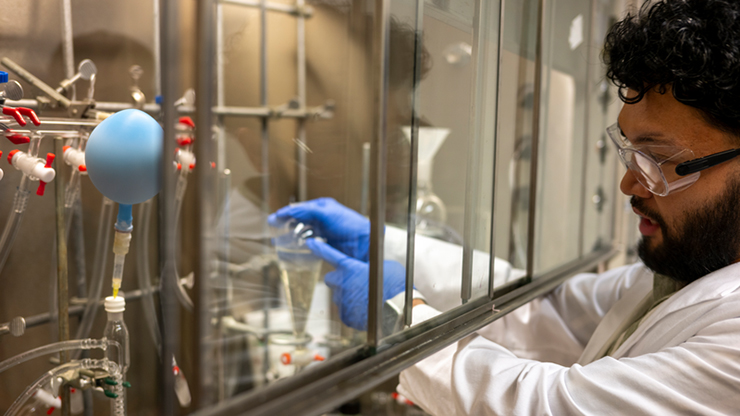
Accelerating Integrative Medicine Research
The new center is hardly starting from scratch. A robust integrative oncology program is already up and running, especially at the Irvine location, where patients receive Western medicine side-by-side with evidence-based integrative therapies, such as acupuncture, massage and meditation, all available in-house.
The new center will bring together the many individual trials and studies of natural and mind-body therapies already ongoing across the institution, as well as accelerate new research studies.
Just a few examples: Lee is working on a protocol for optimizing meditation for cancer, and another for acupuncture to treat anxiety during treatment. There’s a study looking at mistletoe extract — commonly in use in Europe — for treating several types of cancer.
A study led by Ajay Goel, Ph.D., M.S, professor and chair of the Department of Molecular Diagnostics and Experimental Therapeutics, is examining curcumin, a botanical supplement derived from turmeric, for prevention of gastrointestinal cancers.
Researcher John Yim, M.D., associate professor in the Division of Breast Surgery, is testing a compound found in thyme and the Chinese herb huang qin for treating breast cancer.And scientist Shiuan Chen, Ph.D., Lester M. and Irene C. Finkelstein Chair in Biology, is gathering encouraging data on white button mushrooms as a possible treatment for prostate cancer.
All of these efforts will be consolidated under one banner. “This gift is a catalyst that will help us build,” said Lee, “and bring like-minded people together, instead of individuals working on their own.”
“Dr. Lee and Dr. Kim, they can make it happen,” said Peggy. “And we believe in them.”
Providing Whole-Person Care
Most significant perhaps is City of Hope’s longstanding commitment to whole person care, a typically Eastern “balanced state” philosophy baked into the institution’s DNA generations ago by early leader Samuel Golter, who declared, “There is no profit in curing the body if, in the process, we destroy the soul.”
“Sam Golter was a genius,” said Kim. “An empathic human being who really believed in the mind-body-soul concept, and of getting people back into society. The Cherngs represent that same philosophy.”
“So I hope,” said Andrew, “that through this integrative oncology research we can discover more beneficial treatments for patients, more ways of reducing the suffering of cancer patients and being more able to give hope.”
“We believe,” Peggy added, “that through this gift, people will believe in Eastern medicine, as they believe in Western medicine. We believe that will strengthen our two cultures and really bring them together.”
Credit:Source link

